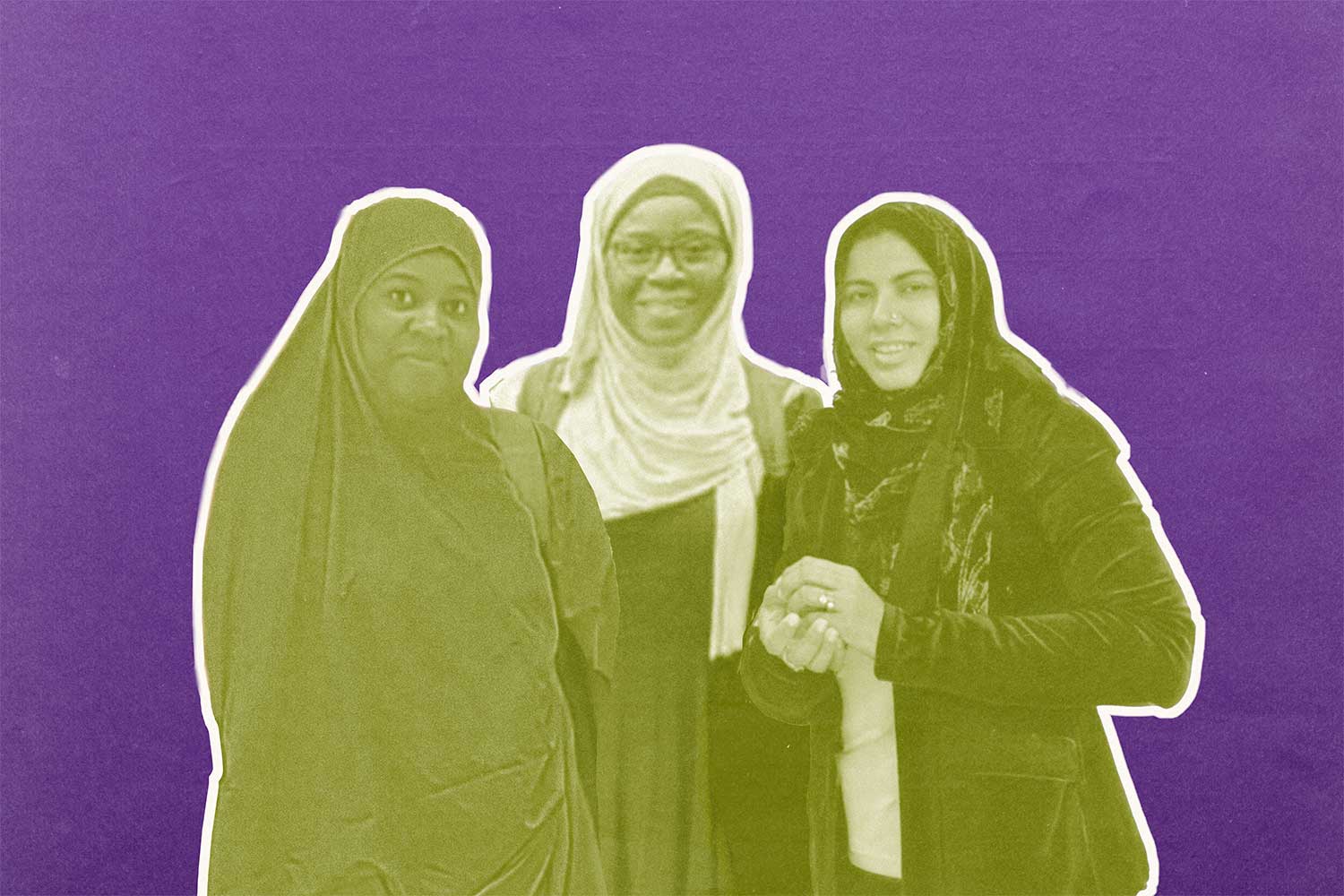
 Image by Louis Karasinski-Stanley featuring research nurses Amina Suleiman Rajah, Mwanamvua (Mwana) Boga and Rubina Qasim
Image by Louis Karasinski-Stanley featuring research nurses Amina Suleiman Rajah, Mwanamvua (Mwana) Boga and Rubina Qasim
This is the first article in a two-part series on nurses leading change in global health. Rafiat Akinokun spoke to Mwanamvua (Mwana) Boga, Rubina Qasim and Amina Suleiman Rajah who have overcome barriers to conduct independent research to improve local health outcomes.
Nurse-led research has become an increasingly vital component in addressing global health challenges. Nurses, as frontline health professionals, often have clear insight into these issues; therefore, their ability to identify problems and innovate solutions is a crucial asset. However, despite their proximity to both patients and communities, their role in shaping global health research has often remained under-recognized.
In many settings, nurses encounter systemic barriers to conducting research, including limited institutional support, time constraints, and restricted access to funding or mentorship. However, when nurses lead research, the results are often transformational in advancing practice, improving health outcomes, and reshaping health system policies.
Through The Global Health Network’s Global Research Nurses Pump-priming Grants 2023: Research Project Awards funded by the Burdett Trust for Nursing, three exceptional nurses have conducted independent research and demonstrated the unique value of nursing perspectives in global health. Their projects encompass neonatal care, menstrual health, and immunization equity, each anchored in clinical experience and driven by community needs:
Mwanamvua Boga, a nurse manager and emotional competence trainer, created an online training program to enhance nurse well-being and promote respectful communication in high-pressure newborn units in Kenya.
Rubina Qasim, a nursing director and academic in Karachi, Pakistan, tackled the issue of zero-dose children by mapping the social and behavioral drivers of low immunization in marginalized slum communities and co-designing solutions with local stakeholders.
Amina Suleiman Rajah, a research midwife in Kano, Nigeria, evaluated reusable menstrual pads tailored to meet the needs of vulnerable groups, connecting hygiene, women’s empowerment, and eco-friendly innovation.
Starting Where They Were: The Pathways Into Research
Their research journey was as diverse as their contexts, yet all were tied to their everyday encounters with patients and systemic gaps.
“I realised that research doesn’t always begin in labs or lecture halls. Sometimes it begins with a nurse simply asking, what could be better?”- Amina
Amina’s research emerged from a personal encounter with the hardships faced by adolescent girls. A news story about a girl missing exams due to a lack of menstrual products resonated deeply with her, prompting a journey that would grow into a randomized controlled trial on reusable menstrual pads in Nigeria. “I remember reading in one of the newspapers that a girl missed exams because she did not have the menstrual product to use. It could be me, but today I am doing my PhD. I could not have been here if I missed my exams”.
This realization sparked Amina’s passion for researching the challenges faced by adolescent girls, specifically regarding menstrual health. “I realised that research doesn’t always begin in labs or lecture halls. Sometimes it begins with a nurse simply asking, What could be better?”
Rubina’s path to research was guided by curiosity. She was curious about the number of unvaccinated children in her community. “I would always ask, Why is this done like this?” Her project on immunization, focusing on reaching "zero-dose" children who have never received a vaccine, was born from this curiosity. “I was troubled that children were missing out on vaccines because they had never been reached," she says. "They were zero-dose - no vaccines at all. I couldn't accept that as normal."
For Mwana, her research journey started with a hospital audit.“That was how I first got involved in evidence generation. It was small, but it showed me that research is not always this big, abstract thing. It starts with noticing a gap.”
She further reflected on her early audits around neonatal tetanus:
“We noticed we were losing many babies to neonatal tetanus, and we wanted to understand what’s happening. So we sat down as nurses and looked at our case notes for the past 10 years. We realised it was from ineffective cord care. We communicated this with antenatal care teams to raise awareness.”
“It was meant to be a small project, but I found that once I had completed one, I wanted to do more. The data was available; we just needed to utilize it.”
Not Without Struggles: The Challenges Behind the Progress
Despite their dedication, each nurse encountered real challenges in their research. For Amina, the biggest obstacle was a lack of support for nurse researchers.
“It’s like for nurses, when it comes to conducting research, your supervisors will say no. They keep pushing us down. This grant was my moment to shine.”
Amina’s experience underscores the lack of institutional support and preparation for nurses to conduct research. She took it upon herself to educate herself through webinars and courses, becoming a strong advocate for nursing research in her country.
Mwana was frustrated by the lack of mentorship and institutional support.
“We lack mentors in this field to support us with research. So you have to be proactive and assertive in seeking support.”
Despite these obstacles, Mwana found valuable peer support within her program, collaborating with statisticians to analyze data and advance her research.
Rubina faced significant delays with ethical approvals, compounded by political instability and security concerns in her community.
“We had delays in ethical approval, and the political instability, such as the elections and security issues, made it difficult. When you work in the community, you have no control over what happens. But I had committed to the community, and they trusted me.”
Conducting research in a community setting meant that Rubina had to navigate not only bureaucratic hurdles but also unexpected real-life challenges.
In part two, Rafiat explores with these three trailblazers the support research nurses need to overcome these challenges.
Part two: What Nurses Need: Support That Goes Beyond Funding